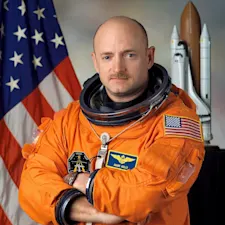
Musk Says the Rich Shouldn't Live Forever — Here's Why
What do you get when you cross unlimited wealth with a fear of death? For some of the world's wealthiest people, the answer is a multi-billion-dollar race to live forever — or at least slow the inevitable. The ultra-wealthy are pouring their fortunes into pushing the limits of human lifespan. Whether these high-priced experiments are the dawn of a new era or just vanity projects with a sci-fi twist, one thing's certain: for the world's richest titans of industry, death has become the ultimate competitor.
The High Cost of Staying Young
When you have billions of dollars, aging becomes less of a personal inconvenience and more of a problem to solve — preferably with cash.

One of the most prominent examples is tech entrepreneur and investor Bryan Johnson. After making his fortune selling online payment platform Braintree®, he reportedly spends around $2 million a year trying to reverse his biological clock. His routine includes eating 70 pounds of puréed vegetables each month, sleeping under strict conditions, and a medical procedure called parabiosis (more on that in a moment).
Johnson even launched the Rejuvenation Olympics, an online leaderboard in which participants compete to reduce their "biological age" (their rate of aging as opposed to traditional "chronological age") through extreme diet regimens, exercise, and medical monitoring. The prize? Eternal bragging rights — if not actual immortality.
And he's far from alone. Silicon Valley has become the unofficial capital of the "de-aging" industry. Twitter founder Jack Dorsey is known for eating one meal daily and taking ice baths. Google® co-founder Larry Page helped launch Calico Labs, a biotech startup focused on slowing age-related diseases. Amazon® founder Jeff Bezos has invested in companies like Altos Labs, which scored $3 billion to research cell rejuvenation, and Unity Biotechnology®, which aims to clear out aging cells.
The Strangest Treatments Money Can Buy
For many of these billionaires, a salad and a jog just won't cut it. That's where the truly bizarre anti-aging treatments enter the conversation.
Consider parabiosis, the process of injecting plasma from young donors into older recipients. This strange procedure has garnered a significant following among the upper crust, creating lucrative business opportunities. A San Francisco startup once charged $8,000 per treatment to fill patients with the liquid part of donated teenage blood.

Rather than paying for these transfusions, Bryan Johnson receives his from his teenage son.
The science behind parabiosis remains murky at best. Some believe it can rejuvenate aging organs and boost memory. Critics, however, question both the ethics and effectiveness of the practice, such as the potential risks of blood transfusions, which include hives, lung injury, and fatal infections, according to the BBC.
Parabiosis is just the tip of the iceberg. At exclusive conferences like the Longevity Investors Conference in the Swiss Alps, wealthy attendees swap stories about extreme self-experimentation. One attendee reportedly tested his biological age over dinner by pricking his finger at the table. Others rely on daily cocktails of unproven supplements like NMN and resveratrol, hoping they'll trigger anti-aging effects despite limited human data.
Who's Funding Forever?
Behind these personal obsessions is an industry awash in cash. In 2022, according to Vox, longevity-related startups raised over $5 billion, much of it from tech titans eager to solve aging like they would a software bug. Altos Labs and Calico focus on cellular "reprogramming," while Retro Biosciences, backed by OpenAI's Sam Altman, is working to add a decade to human life.
Of course, not every billionaire buys into longevity projects. Elon Musk has been vocal about his disinterest in life extension. In a 2022 podcast, Musk warned that living too long could entrench power among the ultra-wealthy and slow societal progress. As reported by Benzinga, Musk said: "When people get old, they don't change their minds; they just die. So, if you want to have progress in society, you got to make sure that people need to die because they don't change their mind. If all children lived for a long super long time I think society would get very stale."
Will Any of This Actually Work?
Here's the reality check: while genuine scientific progress is happening in aging research — such as trials with drugs like rapamycin and metformin — experts caution that the dream of immortality remains just that: a dream.
Most of today's top treatments, from supplements to blood transfusions, lack conclusive human evidence. While mice might thrive with some of these interventions, humans are a much trickier species due to our greater physiological complexity.
Most medical researchers say the most effective longevity strategies remain simple, affordable, and shockingly dull: eat well, exercise regularly, and get enough sleep. Yet many of the world's richest people seem to agree: Where's the fun in that?

As more money flows into the de-aging field, some researchers worry that hype is outpacing the science. Yet, if history has taught us anything, it's that people have always searched for a fountain of youth. The only difference now is that the world's wealthiest have the resources to make a genuine attempt.
Still, no matter how many millions get spent on anti-aging clinics, gene therapies, or teenage plasma, the biblical passage in Luke 18:25 reminds us, "for it is easier for a camel to go through the eye of a needle than for a rich
Eternal life might just prove harder to buy than a bigger yacht.
References: Inside the very strange, very expensive race to "de-age" | The super rich are injecting blood from teenagers to gain 'immortality' | Inside the billion-dollar meeting for the mega-rich who want to live forever | Bezos and Zuckerberg Invest Millions to Live Longer While Musk Refuses | The real science behind the billionaire pursuit of immortality | Elon Musk Believes He Could Probably Extend The Human Lifespan























